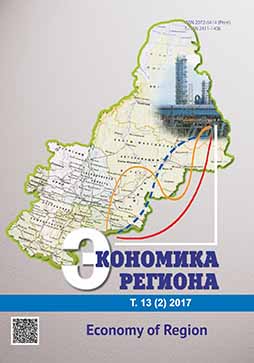ENTREPRENEURIAL CAPACITY OF UNIVERSITIES AND ITS IMPACT ON REGIONAL ECONOMIC GROWTH
ENTREPRENEURIAL CAPACITY OF UNIVERSITIES AND ITS IMPACT ON REGIONAL ECONOMIC GROWTH
Author(s): Dmitry Mikhaylovich Kochetkov, Viola Anatoylevna Larionova, Darko Bozha VukovicSubject(s): Economy, Geography, Regional studies
Published by: Институт экономики Уральского отделения Российской академии наук
Keywords: higher education; entrepreneurial university; innovative cluster; university rankings; technology transfer; knowledge economy; economic development; regional policy; regional economy; indicators of un
Summary/Abstract: The scope of our research is the university as the key actor of economic change. Historically, it is possible to allocate four types of the university by analogy to four industrial revolutions. In the conditions of the fourth industrial revolution, there is a radical shift in the university model. From research and development and technology transfer, the university moves to the creation of the intellectual capital. The university does not simply conduct R&D for business but creates essentially new industries. The university becomes the center around which the new hi-tech enterprises grow. This phenomenon has been entitled entrepreneurial university that is the main actor of the entrepreneurial (startup) economy. In this study, we examined the different approaches to the evaluation of universities, first of all, global university rankings. Each ranking methodology assesses the different functional areas; a unified methodology of the evaluation of university as a complex system is currently lacking. At the same time, we tried to define the mechanism of the impact of the universities on regional economic growth grounding on a case of Russian universities. A comparative study of Novosibirsk and Tomsk universities has revealed key problem areas and barriers in the process of university engagement in regional economic systems. The findings will be used in further theoretical and applied research, as well as decision-making in the area of educational policy.
Journal: Экономика региона
- Issue Year: 13/2017
- Issue No: 2
- Page Range: 477-488
- Page Count: 12
- Language: English

